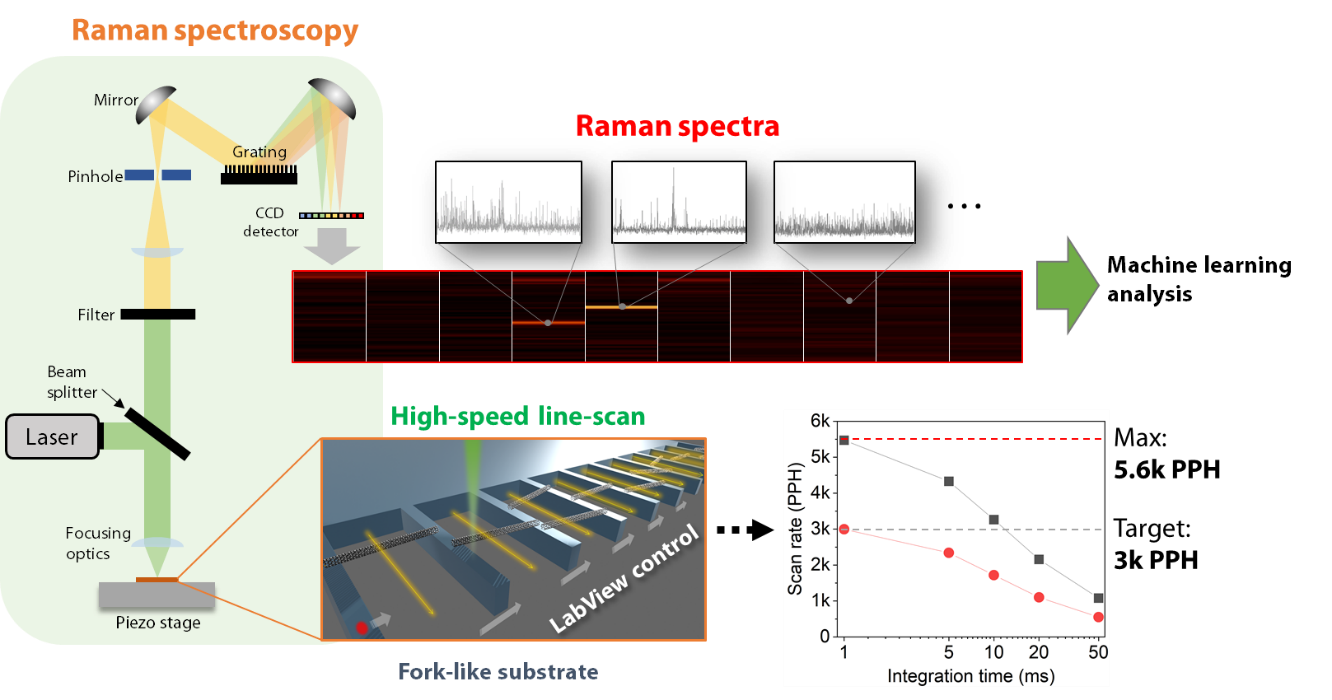Transport at Nanoscale Interfaces
Hybrid Nanoscale Interfaces

Collaborators in Laboratory: Dr. Rolf Brönnimann, Rico Muff, Dr. Jan Overbeck, Prof. Michel Calame
External partners: Seoho Jung (ETHZ), Dr. Cosmin Roman (ETHZ), Dr. Miroslav Haluska (ETHZ), Sebastian Böhl, Prof. Christofer Hierold (ETHZ), Natanael Lanz (ETHZ), Sascha Weikert (ETHZ), Prof. Konrad Wegener (ETHZ), Luis Barba (EPFL), Prof. Martin Jaggi (EPFL).
Funding: This project (Nano Assembly) is funded by the Strategic Focus Area - Advanced Manufacturing (SFA-AM). https://www.sfa-am.ch/nano-assembly.html. M.L.P. and J.Z. acknowledge funding by the EMPAPOST-DOCS-II program, which has received funding from the European Union’s Horizon 2020 research and innova-tion program under the Marie Skłodowska–Curie Grant Agreement no. 754364. M.L.P. also acknowledges fund-ing from the Swiss National Science Foundation under the Spark grant no. 196795.
References
- Zhang et al. High-speed identification of suspended carbon nanotubes using Raman spectroscopy and deep learning. Microsystems & Nanoengineering (2022).

Prof. Dr. Mickael Lucien Perrin
Group Leader Quantum Devices
Deputy Head of Laboratory
Phone: +41 58 765 4610